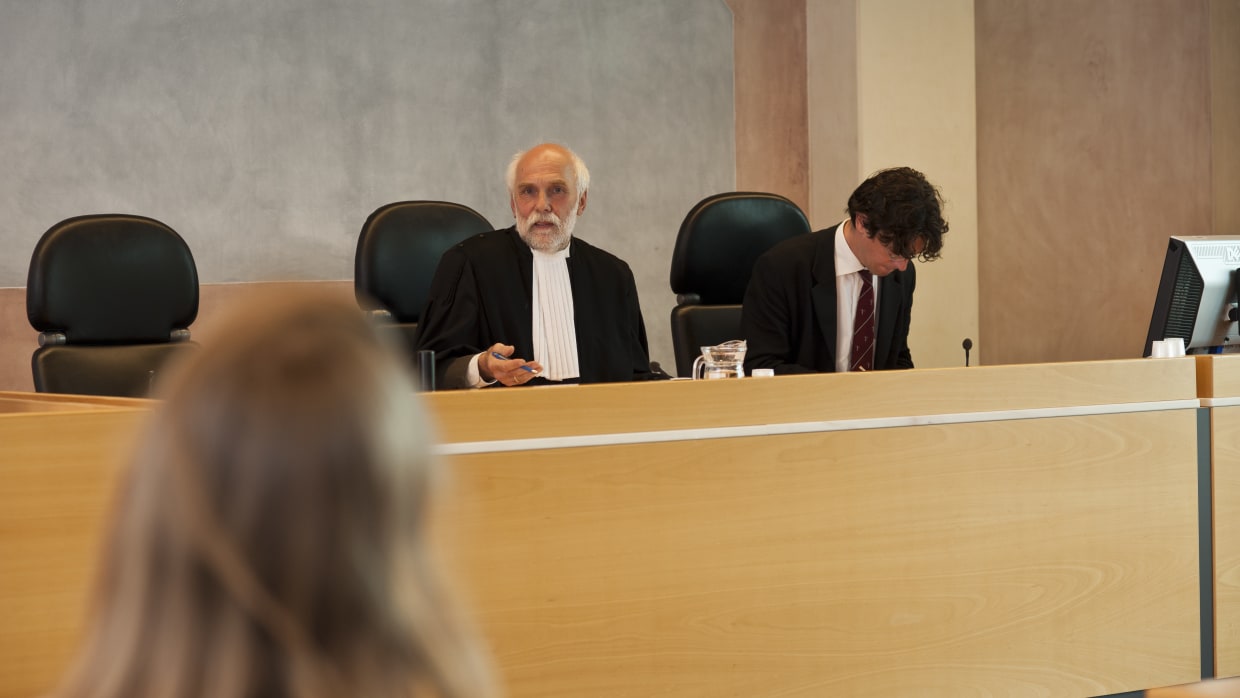
The role of personal beliefs in judges: “I notice that I am getting irritated with you”
To what extent do personal beliefs play a role in a judge’s work? UvA doctoral student Elke Olthuis researched this. “If something affects you, it affects you.”
As many as 77 judges spoke to legal scholar Elke Olthuis for her doctoral research. She asked them whether they felt that their personal views played a role in their decision-making. “It was not specifically about what they voted for, like Vrij Nederland’s research on ‘D66 judges.’ Personal views could also concern the climate crisis, drugs, or simply being late to court, for example.”
Most judges stated that they were able to set aside their personal views to some extent. “The judges mentioned several tools for dealing with their views.” First, they try to become aware of the role of their personal views during the trial. “They often didn’t know themselves how they do that exactly,” Olthuis smiles. “Many judges like to take a break when they notice that their views may play a role. For example, they may briefly adjourn a court session and leave the courtroom temporarily.”

Another way of distancing yourself from personal views is to discuss a case with other judges. There is a culture within the judiciary where judges regularly drop into each other’s offices. Olthuis explains, “There is a lot of deliberation, in my opinion.”
Praying
Olthuis also conducted a small experiment to examine the extent to which personal beliefs play a role. She asked judges to review an existing but slightly modified case about a neighbor dispute. Half of the participating judges read a version in which one of the parties was “praying” several times. “Judges who read this version viewed the defending party more positively.” However, nowhere did Olthuis’ results indicate that the judges’ view of it had a direct effect on the outcome.
Some judges indicated that it helps that they wear a gown. “The moment they wear their robes, some feel like a different person.”
But it’s not always a nice feeling. “Some judges, with the pressure of what the gown stands for - an impartial judge - also feel the pressure of the rule of law weighing on their shoulders.” Olthuis tried to emphasize just that human aspect of judges. “I did hear that judges get emotional. If something touches you, it touches you. That can happen with a case.”
Awareness
The fact that the law is, of course, the primary focus is also a good tool for some judges to deal with their personal views. “Besides distancing themselves, discussing cases within that deliberative culture and the role of a gown, judges cited ‘the law’ itself as a tool,” Olthuis explained. “Judges described how they sometimes also take a moment to think, ‘Instead of what I think about it, what exactly does the law say about it?’”
In doing so, judges are also trained in “awareness.” Even though Olthuis herself teaches the subject at the judges’ college, she also makes a side note. “If you are aware, you are not rid of all the processes going on in your head.” What judges often do is to indicate that they notice something within themselves. Olthuis says, “For example, as a judge, if you notice that a party’s behavior annoys you, you can say to that person in the courtroom, ‘I notice that I am getting irritated with you.’ After all, if you are aware of how you think about something, you can also name it better.”
PhD Elke Olthuis on her dissertation, The Human Element in Judicial Decision-Making: The Role of Personal Attitudes on Friday, June 21st. Starts at 2:00 p.m. Location: Aula, Old Lutheran Church.

